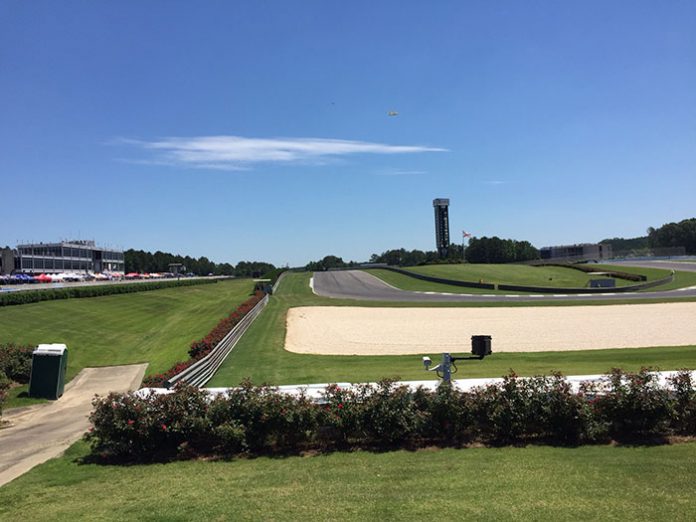Major racetrack, Barber Motorsports Park, understands the importance of reliable race-control communications. The 740 acre park, located just east of Birmingham, Alabama, features a 16-turn, 2.38-mile car and motorcycle racetrack where patrons enjoy Grand-Am, NASCAR, AMA Superbike, and other exciting races.
To ensure clear, properly prioritized communications in an extremely noisy environment, system integrators Data Plus Security of Hueytown, Alabama, installed a customized system based on a Symetrix Prism 8×8 DSP unit.
“The track used to have a jury-rigged system made out of telephone parts, and it was a disaster,” recounts Data Plus owner Jonathan Curelar. “They also had two-way radios but only one person could talk at a time. They have 30 people on a conference who each need to talk. It was a big issue”.
Curelar’s team designed custom weather-resistant enclosures to house the gear and selected the connectors, amps, and noise-cancelling microphones and headphones. Then they took advantage of preexisting CAT6 wiring between Race Control and the corner stations to implement a Dante-based digital communications system, managed with the Symetrix Prism 8×8.
“We use Symetrix DSPs in a lot of projects,” Curelar explains. “We’ve installed Symetrix-based conferencing systems in a variety of courthouses, for instance. Symetrix has awesome products and continuously improves them. I knew Prism had everything I needed to tie together and manage the track’s station communications.”
The new system bought enabled up to 30 people to conference together, allowing Race Control to manage the conversations so key communications could be heard. “The Race Control director only talks when it’s important, so that has to take priority over the individual stations,” expounds Curelar. “Indy races have a race director, and nobody can talk over them. And at the smaller races, many of the people at the stations are volunteers who sometimes chat, which may not interfere with important announcements. We also needed controls for the individual stations because you don’t always have the same person at the same station, and some people don’t hear as well, or speak very loudly, or are soft spoken.”





